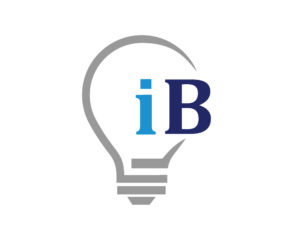Self-Employed And Considering Bankruptcy – 4 Things Your Attorney Needs
In A Nutshell
If you’re self employed, your bankruptcy attorney will need the following types of records.
1) Profit & Loss Statement
2) Regular Monthly Business Expenses
3) Business & Personal Tax Returns
4) Business Insurance
Bankruptcy for the Self Employed In More Detail
It is not my goal to scare you if you are self-employed. But I file many bankruptcies for individuals or couples that own their own businesses. Obviously starting your own business requires you to take risks, and everyone knows that in the business world it is often easier to fail than to succeed. Failure of your business can result from circumstances outside of your control (i.e. shift in the industry, market downturn, etc.). On the other hand, the demise of your business could have been avoided had you properly established your business with the necessary tools in place to keep you out of trouble. The items I discuss below are things (whether you file a bankruptcy or not) that you should keep up with in your business. Do not let yourself get behind on accounting for your expenses, keeping your business and personal expenses separate, filing your taxes, paying quarterly estimated taxes (if required), or paying your business liability insurance.
1) Profit & Loss Statement
When determining the type of bankruptcy you should file, I need to look at your income… both present day and the last 6 months. If you are self-employed, then you probably do not receive a paycheck (if you do, then I certainly need to see those too). Rather, your income is the profit from your business. I need you to provide me with a profit and loss statement for each of the last 6 months. This can be created by you, your accountant, a bookkeeper, etc and must contain your monthly total revenue, total expenses, and whether the difference between the two is a profit or a loss. Below is an easy to use document that will allow you to figure your profit/loss for each month. It will also list your regular monthly business expenses which I will discuss below.
Click Here For A Sample Form Profit and Loss Form
2) Regular Monthly Self Employed Business Expenses
I also need you to provide me with a list of your average, regular monthly business expenses. Completing the form above will allow you to list out your business expenses for each of the last 6 months. I will then average these numbers to come up with a snapshot of what your business expenses will be moving forward. You will need to tell me if, for one reason or another, you believe the expenses over the last 6 months do not accurately reflect what your expenses will be in future months.
When you provide me with your business expenses, make sure they are truly “business” expenses and not personal expenses. Business expenses are the reasonable costs necessary to operate your business. Expenses for business advertising, office supplies, new inventory, and wages paid to an employee are all business expenses that reduce your profit. On the other hand, your home’s mortgage, eating dinner with your family, and paying for a vacation are personal expenses that do not reduce your company’s profit and are therefore not business expenses. Note: I have many self-employed clients and have found that it is common for people to deduct expenses from their business that are not truly business expenses. This is an easy way to get in trouble with the IRS if you or your business is ever audited.
dinner with your family, and paying for a vacation are personal expenses that do not reduce your company’s profit and are therefore not business expenses. Note: I have many self-employed clients and have found that it is common for people to deduct expenses from their business that are not truly business expenses. This is an easy way to get in trouble with the IRS if you or your business is ever audited.
3) Business & Personal Tax Returns
When analyzing your situation, I will need to review your individual and company’s (if it is different) last filed tax return. Your tax returns will provide me with information regarding your income for the previous year as well as other pertinent information. Your returns will also need to be submitted to the Trustee appointed to your case. Having your returns in my possession will ensure that they get sent to the Trustee soon after your case is filed.
Whether you have filed one tax return containing information about you and the company or two separate returns (one for you, one for the company) will depend on the type of corporate entity. A sole proprietorship (which seems to be the most common type I see but which is discouraged because of the lack of protection it provides for the owner) will typically not file a separate return. Rather, the owner’s personal tax return will include the profit/loss of the company. Generally, businesses that are incorporated (LLC, Incorporation, Professional Company, etc.) will file a separate tax return.
Also, if you or your business owe taxes, then it will be helpful for me to review tax returns for those years. Sometimes taxes are discharged through a bankruptcy and sometimes they are not (discussed in a previous posts – Chapter 7 – Chapter 13). Providing me with tax returns for years you owe taxes will allow me to determine how those taxes will be affected by your bankruptcy.
4) Business Insurance
If your company has business liability insurance, then I need you to provide me with a declaration page detailing the policy. The declaration page would show the policy’s premium, the amount of coverage provided, and a description of what is covered by the policy. This is not always required to send to the Chapter 7 Trustee, but the Trustee in most Chapter 13s wants to review the policy.
Business liability insurance is coverage that can protect your business from various claims resulting from the operation of your business. These claims can consist of bodily injury, injury to property, disputes over goods delivered by your business, wage disputes, and many more. Insurance is a cost that is necessary to your business (and one that is deductible from your company’s profit).
If you are self-employed, then fill out our online intake form to get your free evaluation from me. Completing the intake form does not obligate you to anything. Rather, I will respond quickly with my analysis and help you determine whether or not bankruptcy is an option for you to consider.
The sooner you start the process, the more control you’ll have over the outcome in your situation. There’s no cost and no obligation to fill out the iBankruptcy intake form and have me review your information. Don’t put it off any longer.
Get Your Free Bankruptcy Evaluation Today
